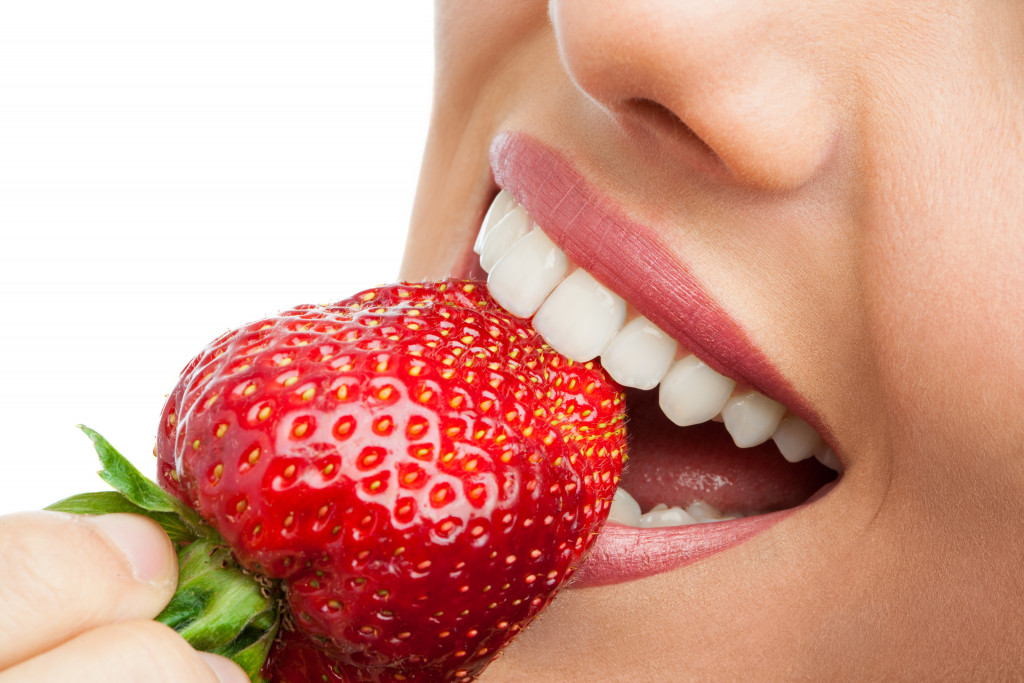When it comes to our teeth, proper care is essential for keeping them healthy and strong. But how do we properly care for our teeth at home? The answer lies in a combination of various steps you should regularly take to ensure good oral health. Let’s explore some best practices to keep your teeth in tip-top shape.
1. Brushing & Flossing
The most crucial part of dental hygiene is maintaining a healthy brushing and flossing routine. It would be best to brush at least twice a day – after breakfast and before bed – with a soft bristle toothbrush and fluoride toothpaste. For the best results, brush gently yet thoroughly, ensuring you reach all areas of your mouth, including the very back of your molars. They, too, need attention.
Additionally, flossing once a day helps remove food particles and plaque that can build up between teeth and cause gum disease. Make sure to gently slide the floss between each tooth, reaching all areas of your mouth. Some people find it helpful to floss before brushing, as this helps the fluoride toothpaste better reach between teeth and along the gum line. If you have braces, you will need to use special tools such as interdental brushes and floss threaders.
2. Regular Dental Visits
While brushing and flossing are essential for daily maintenance, regularly visiting your local dental clinic is key for keeping your teeth in optimal condition. The American Dental Association recommends visiting your dentist every six months so they can provide an extra clean that even the best brushes cannot replicate. During these visits, dentists will look for signs of cavities or other oral health issues so they can be treated quickly before they become more significant problems down the road.
A good dentist will also provide preventative advice to help you keep your teeth healthy over the long run. They can identify any potential risks and recommend a tailored care plan that works for you. If you have any questions or concerns, these are great opportunities to talk through them and gain valuable advice.
3. Mouthwash & Oral Rinse
For extra protection against bacteria buildup, using an alcohol-free mouthwash or oral rinse can help reduce plaque formation in hard-to-reach crevices that even flossing may not reach. A simple anti-bacterial rinse should do just fine; however, if you have specific concerns such as gingivitis or bad breath, you may want to consult your dentist about what kind of rinse would be best for you.
When choosing a mouthwash, look for one that contains fluoride to help protect your teeth against cavities. It’s also important to remember that mouthwash can help reduce plaque but cannot replace regular brushing and flossing. Don’t use it as a substitute for these important steps.

4. Diet & Nutrition
It’s no secret that what we eat plays a significant role in our overall health – oral health included. Eating too much sugary or starchy foods can cause plaque buildup, leading to cavities. To reduce your risk, it’s important to limit sugary snacks and drinks and instead focus on incorporating tooth-friendly foods into your diet.
Some dental-friendly snacks include crunchy raw vegetables, like carrots and celery, yogurt, cheese, and nuts. These foods increase saliva production, which helps wash away plaque and food particles before they have a chance to stick to your teeth. You may also want to consider drinking fluoridated water, as this can help strengthen the enamel of your teeth. If you’re having trouble with your diet, consult a nutritionist who can help create an individualized plan.
5. Quit Smoking
Finally, quitting smoking or using any other tobacco products is a must if you want to keep your teeth and gums healthy. Smoking stains the teeth and can lead to gum disease, tooth decay and even oral cancer. Many dentists are trained in providing smoking cessation services, so don’t hesitate to reach out if you’re having trouble quitting.
You may also reach out to your local health department for support in quitting or check online resources such as the CDC’s Tips from Former Smokers. With a little commitment and dedication, you can take the necessary steps to protect your teeth and gums against the harmful effects of smoking.
Caring for your teeth doesn’t have to be complicated or time-consuming. With a little effort each day – including brushing twice a day, flossing once a day, regular dental visits every six months, and incorporating an alcohol-free mouthwash into your dental hygiene routine – you’ll be well on your way toward having strong, healthy teeth that will last a lifetime! So don’t wait any longer—start taking action today!

